Ford Explorer EV vs Jeep Avenger - Differences and prices compared
Compare performance (340 HP vs 156 HP), boot space and price (34200 £ vs 21900 £) at a glance. Find out which car is the better choice for you – Ford Explorer EV or Jeep Avenger?
Costs and Efficiency:
Price and efficiency are key factors when choosing a car – and this is often where the real differences emerge.
Jeep Avenger has a decisively advantage in terms of price – it starts at 21900 £, while the Ford Explorer EV costs 34200 £. That’s a price difference of around 12258 £.
In terms of energy consumption, the advantage goes to the Ford Explorer EV: with 14.50 kWh per 100 km, it’s barely noticeable more efficient than the Jeep Avenger with 15.50 kWh. That’s a difference of about 1 kWh.
As for range, the Ford Explorer EV performs evident better – achieving up to 602 km, about 202 km more than the Jeep Avenger.
Engine and Performance:
Power, torque and acceleration are the classic benchmarks for car enthusiasts – and here, some clear differences start to show.
When it comes to engine power, the Ford Explorer EV has a decisively edge – offering 340 HP compared to 156 HP. That’s roughly 184 HP more horsepower.
In acceleration from 0 to 100 km/h, the Ford Explorer EV is significantly quicker – completing the sprint in 5.30 s, while the Jeep Avenger takes 9 s. That’s about 3.70 s faster.
In terms of top speed, the Jeep Avenger performs minimal better – reaching 194 km/h, while the Ford Explorer EV tops out at 180 km/h. The difference is around 14 km/h.
There’s also a difference in torque: Ford Explorer EV pulls significantly stronger with 679 Nm compared to 260 Nm. That’s about 419 Nm difference.
Space and Everyday Use:
Whether family car or daily driver – which one offers more room, flexibility and comfort?
Both vehicles offer seating for 5 people.
In curb weight, Jeep Avenger is clearly lighter – 1180 kg compared to 1908 kg. The difference is around 728 kg.
In terms of boot space, the Ford Explorer EV offers a bit more room – 450 L compared to 380 L. That’s a difference of about 70 L.
In maximum load capacity, the Ford Explorer EV performs a bit better – up to 1422 L, which is about 145 L more than the Jeep Avenger.
When it comes to payload, Ford Explorer EV slightly takes the win – 585 kg compared to 502 kg. That’s a difference of about 83 kg.
Who wins the race?
The Ford Explorer EV proves to be is largely superior and therefore becomes our DriveDuel Champion!
Ford Explorer EV is the better all-rounder in this comparison.
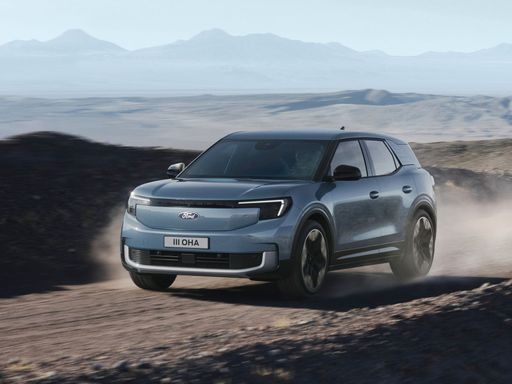
Ford Explorer EV
Costs and Consumption
View detailed analysis
Engine and Performance
View detailed analysis
Dimensions and Body
View detailed analysis
Ford Explorer EV
The Ford Explorer EV translates the familiar big‑American SUV presence into whisper‑quiet electric motoring, offering roomy seating and a tech‑forward cabin that will please families and road‑trippers alike. It drives with more composure than its boxy looks suggest, blending a comfortable ride and eager acceleration while undercutting the guilt of gas stops — a practical, modern alternative for buyers who want Explorer space with electric charm.
details
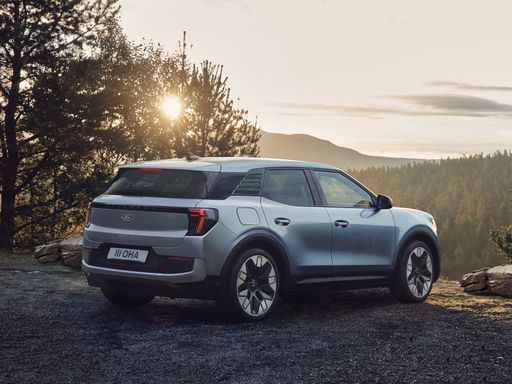
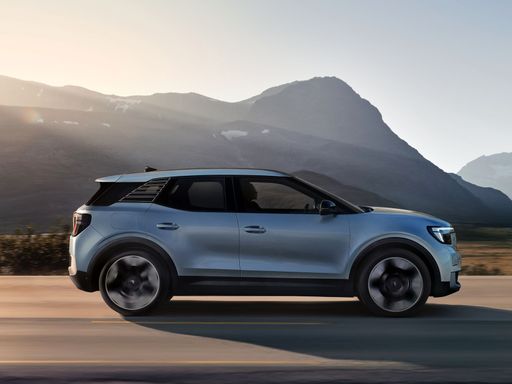
Jeep Avenger
The Jeep Avenger shrinks Jeep's boxy, adventurous styling into a city-friendly electric crossover that looks just as at home on tight streets as it does on muddy weekend lanes. It's a savvy pick for drivers who want go-anywhere attitude without the truck-size ego — practical inside, lively around town and ready to tackle a bit of rough stuff when the mood strikes.
details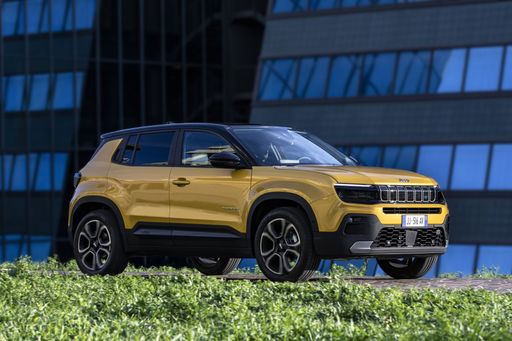
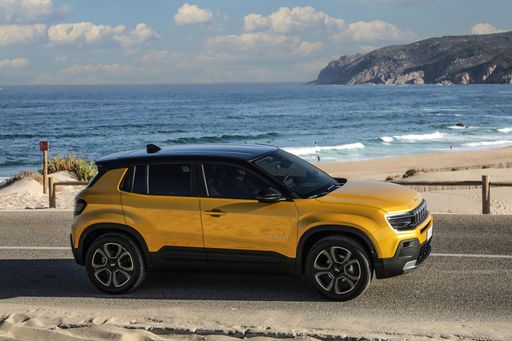




|

|
|
|
|
Costs and Consumption |
|
|---|---|
|
Price
34200 - 48800 £
|
Price
21900 - 36900 £
|
|
Consumption L/100km
-
|
Consumption L/100km
4.9 - 5.7 L
|
|
Consumption kWh/100km
14.5 - 17.2 kWh
|
Consumption kWh/100km
15.50 kWh
|
|
Electric Range
360 - 602 km
|
Electric Range
400 km
|
|
Battery Capacity
52 - 79 kWh
|
Battery Capacity
51 kWh
|
|
co2
0 g/km
|
co2
0 - 129 g/km
|
|
Fuel tank capacity
-
|
Fuel tank capacity
44 L
|
Dimensions and Body |
|
|---|---|
|
Body Type
SUV
|
Body Type
SUV
|
|
Seats
5
|
Seats
5
|
|
Doors
5
|
Doors
5
|
|
Curb weight
1908 - 2179 kg
|
Curb weight
1180 - 1520 kg
|
|
Trunk capacity
445 - 450 L
|
Trunk capacity
325 - 380 L
|
|
Length
4468 mm
|
Length
4084 - 4088 mm
|
|
Width
1871 mm
|
Width
1776 mm
|
|
Height
1630 - 1639 mm
|
Height
1527 - 1541 mm
|
|
Max trunk capacity
1417 - 1422 L
|
Max trunk capacity
1218 - 1277 L
|
|
Payload
561 - 585 kg
|
Payload
494 - 502 kg
|
Engine and Performance |
|
|---|---|
|
Engine Type
Electric
|
Engine Type
Electric, Petrol, Petrol MHEV
|
|
Transmission
Automatic
|
Transmission
Automatic, Manuel
|
|
Transmission Detail
Reduction Gearbox
|
Transmission Detail
Reduction Gearbox, Manual Gearbox, Dual-Clutch Automatic
|
|
Drive Type
Rear-Wheel Drive, All-Wheel Drive
|
Drive Type
Front-Wheel Drive, All-Wheel Drive
|
|
Power HP
170 - 340 HP
|
Power HP
100 - 156 HP
|
|
Acceleration 0-100km/h
5.3 - 8.7 s
|
Acceleration 0-100km/h
9 - 10.6 s
|
|
Max Speed
160 - 180 km/h
|
Max Speed
150 - 194 km/h
|
|
Torque
310 - 679 Nm
|
Torque
205 - 260 Nm
|
|
Number of Cylinders
-
|
Number of Cylinders
3
|
|
Power kW
125 - 250 kW
|
Power kW
74 - 115 kW
|
|
Engine capacity
-
|
Engine capacity
1199 cm3
|
General |
|
|---|---|
|
Model Year
2024 - 2025
|
Model Year
2023 - 2025
|
|
CO2 Efficiency Class
A
|
CO2 Efficiency Class
A, D, C
|
|
Brand
Ford
|
Brand
Jeep
|
What drive types are available for the Ford Explorer EV?
The Ford Explorer EV is available as Rear-Wheel Drive or All-Wheel Drive.
The prices and data displayed are estimates based on German list prices and may vary by country. This information is not legally binding.
